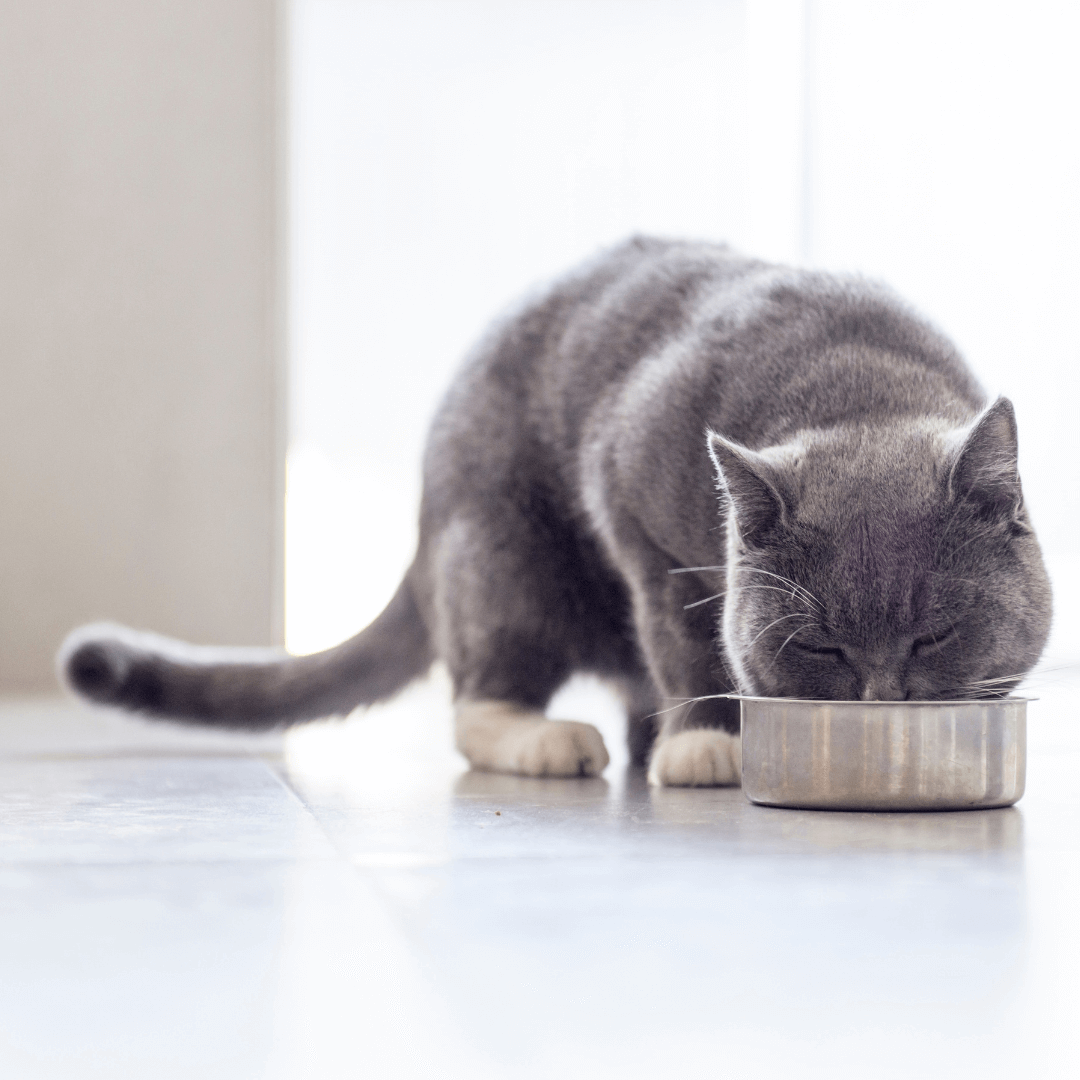How Much Food Your Cat Needs

Cat owners old and new will at some stage wonder how much food their cat needs. We take a look at the amount and frequency of meals, which depend on your cat’s age and stage of life, their health and their taste preferences.
The Importance of Balance
We have all heard how important a balanced diet is. The same goes for our feline friends, but to a different degree. Cats are obligate carnivores, which means they need to eat meat. Think: hunted prey, such as a mouse. Mice are composed of meat, fat, bones, organs, and any liquid is a source of hydration. That’s what they are designed to live from.
In a domestic setting, this translates to cat food that is grain-free, high in real meat protein and high in fats, specifically essential fatty acids they need for biological processes that their bodies can’t manufacture. Ultimates Indulge food for cats is vet formulated, contains no artificial colours, flavours or preservatives, and contains taurine for good eyesight. Read more about the care taken in developing Ultimates Indulge cat food.
The pet food aisle at your local supermarket holds dozens of varieties of cat food. While dry food is abundantly available, it is essential you check the ingredients. It is important to note that if your cat is eating dry food, you need to encourage them to drink lots of water to avoid dehydration and kidney problems.
Provide your cat with the wrong kind of food, and they will struggle to maintain good health. Provide what cats need, and they will thrive.
But How Much Is Enough?
The answer to this question is based on a number of variables. These include your cat’s age and stage of life, their weight, and their activity levels.
Age and Stage
How much your cat needs depends on their age and stage of life: kitten, neutered/pregnant/nursing, adult or senior. Kittens have different nutritional needs and require more regular feedings throughout the day. They need a lot of protein and nutrients like essential fatty acids and amino acids. To assist healthy growth, provide your kitten with a formulated wet food made specifically for kittens. How long they need kitten food depends upon their growth, but generally it is for their first year of life. Ask your veterinarian for advice at your little kitty’s check-up.
Pregnant and nursing cats also need more protein and essential fatty acids. In fact, it is common practice to feed a pregnant or nursing cat kitten food, the bonus being that when the time comes, their little kittens that are ready for wet food, can copy mum and eat like she does.
Commercially available cat food is generally formulated for healthy neutered cats. There are varieties that are made for ‘all life stages’, which advertise suitability for all life stages. Research these varieties to ensure they will provide all that your cat needs.
Senior cats benefit from a diet tailored to their ageing body. Again, the advice of your veterinarian armed with your cat’s health history is vital.
Weight
Cats with a tendency to gain weight would benefit from more structured feeds. Avoid leaving out a food bowl for them to graze on throughout the day. Instead, offer two portion controlled meals every day alongside access to lots of clean drinking water.
Activity Levels
It makes sense that cats who are active and playful throughout the day will probably need more food than those that prefer to spend most of their time napping. Use their weight as a guide, and adjust accordingly.
Indoor vs Outdoor
Indoor cats may not get as much exercise as an outdoor cat, and need fewer calories. Cats that spend time outdoors, particularly in cooler regions and through winter, will need a higher calorie intake.
With so many factors to consider, there is no concrete answer to the question of how much food your cat needs. Keep this as a guide, remembering to provide the key nutrients they need to thrive. Look out for these 5 Things Your Cat Shouldn’t Eat, and speak with your veterinarian if you have any questions or concerns regarding your cats health and dietary needs.
